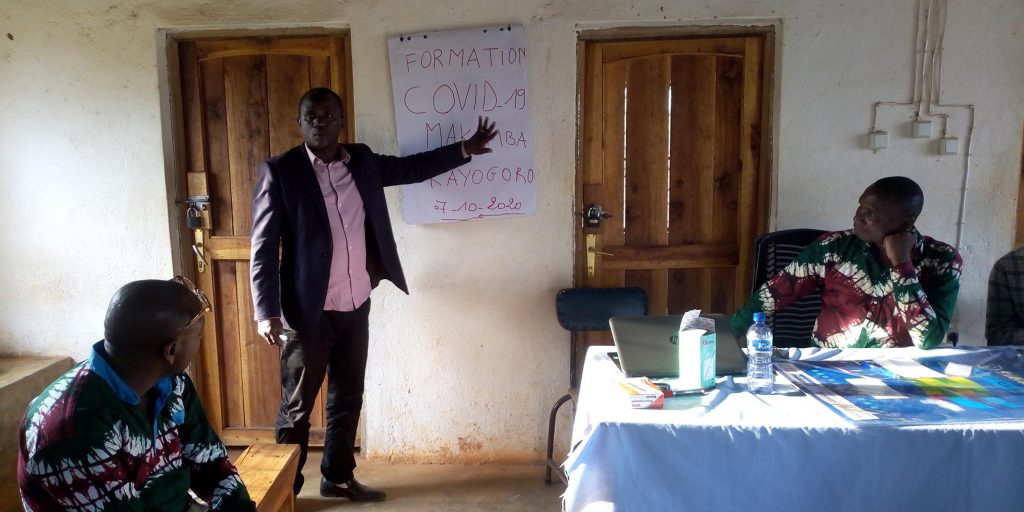The non-governmental organization Iprosarude (Initiative for the Promotion of Rural Health and Development) has started, since Tuesday, September 29 until October 6, 2020; a series of rapid training sessions for health providers, community mobilizers and other community leaders, related to risk communication and community engagement on COVID-19. The purpose of the training is to strengthen the capacity of providers on preventive measures against Covid-19.
These sessions, which are supported by SFF (Segal Family Foundation) aim primarily at improving the prevention of the covid-19 pandemic among the populations of the provinces of Gitega, Kayanza, Mwaro and Makamba, according to Dr. Joseph Bigirimana, Legal Representative of Iprosarude and one of the trainers of these sessions. Secondly, they aim at discussing the role of providers in the control of epidemics.
Indeed, these trainings come at the right time because access to correct information on COVID-19 is very limited in rural areas. They will reach a total of 200 health providers. These providers are responsible for disseminating the information to the community relays, including groups of health workers, VSLA supervisors, religious leaders, and to the young volunteers followed in the sexual and reproductive health program. They will then decentralize the message to the community level about the means of transmission of the new coronavirus.

For an efficient response to the pandemic, the participants committed to redouble their efforts in supporting the implementation of the barrier measures against COVID-19 recommended by the Ministry of Public Health and the Fight against AIDS. “We are going to collaborate and involve more grassroots leaders and influential people in our communities to address together even the challenges observed in relation to compliance with preventive measures,” hammered the participants at the end of each session. These participants, especially Iprosarude’s community mobilizers, will then collect, through different communication channels, the questions, perceptions and rumors that circulate in their communities and use them in the orientation of the messages to be shared with these communities. An identifying and supporting community solution to contain COVID-19 is another resolution taken by the trained community agents to encourage communities to adopt good practices.
The exchange of experiences during these trainings strongly opened the minds of the participants. In addition, they learned about the clinical signs of coronavirus disease, treatment techniques including symptomatic treatment, modes of transmission and how to involve communities more effectively in the response to COVID-19 and in the collection of feedback.
It is expected that more than 30920 people in the 4 Iprosarude intervention zones, will be sensitized on COVID-19.
E.Allickan Niragira


Recent Comments